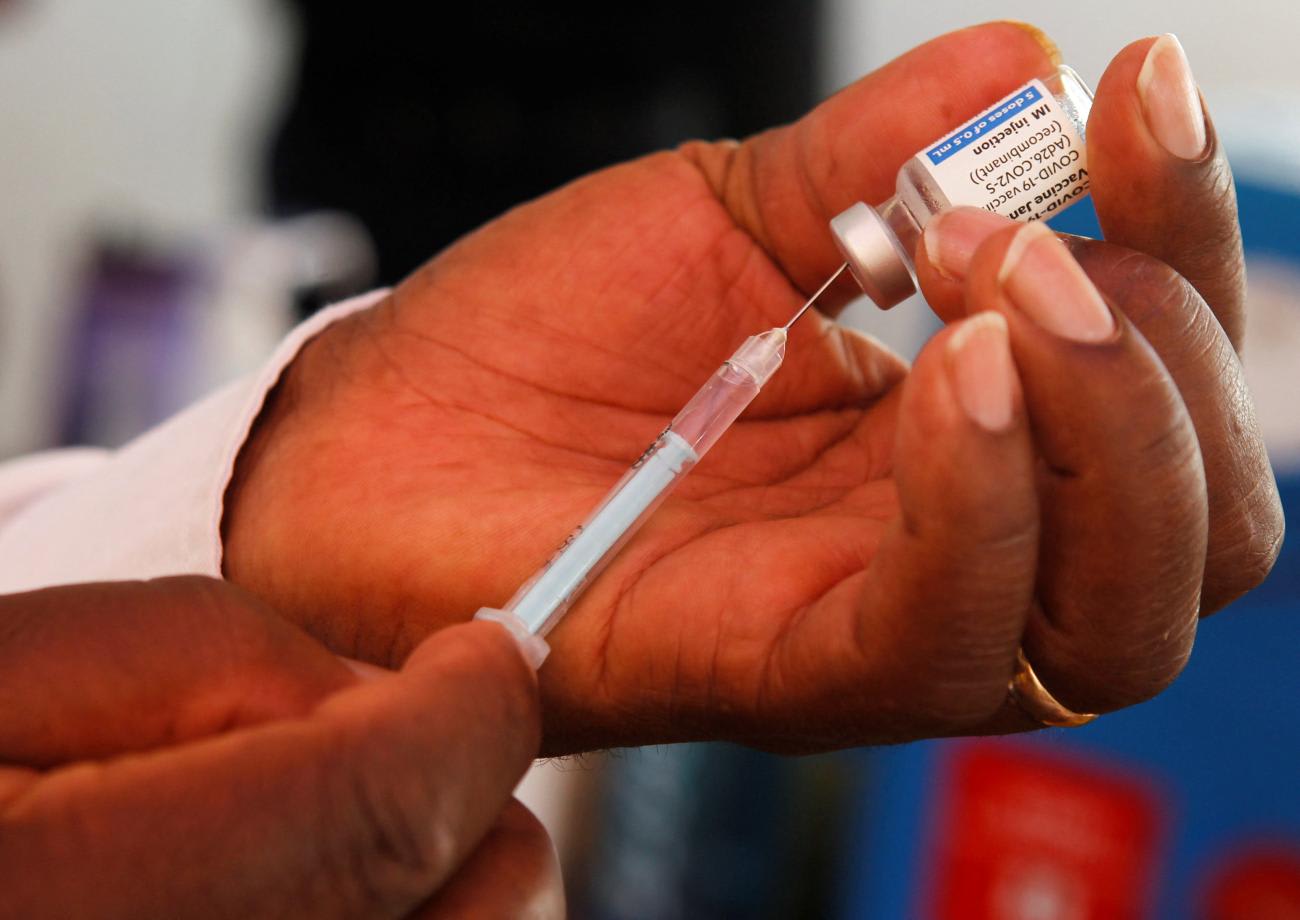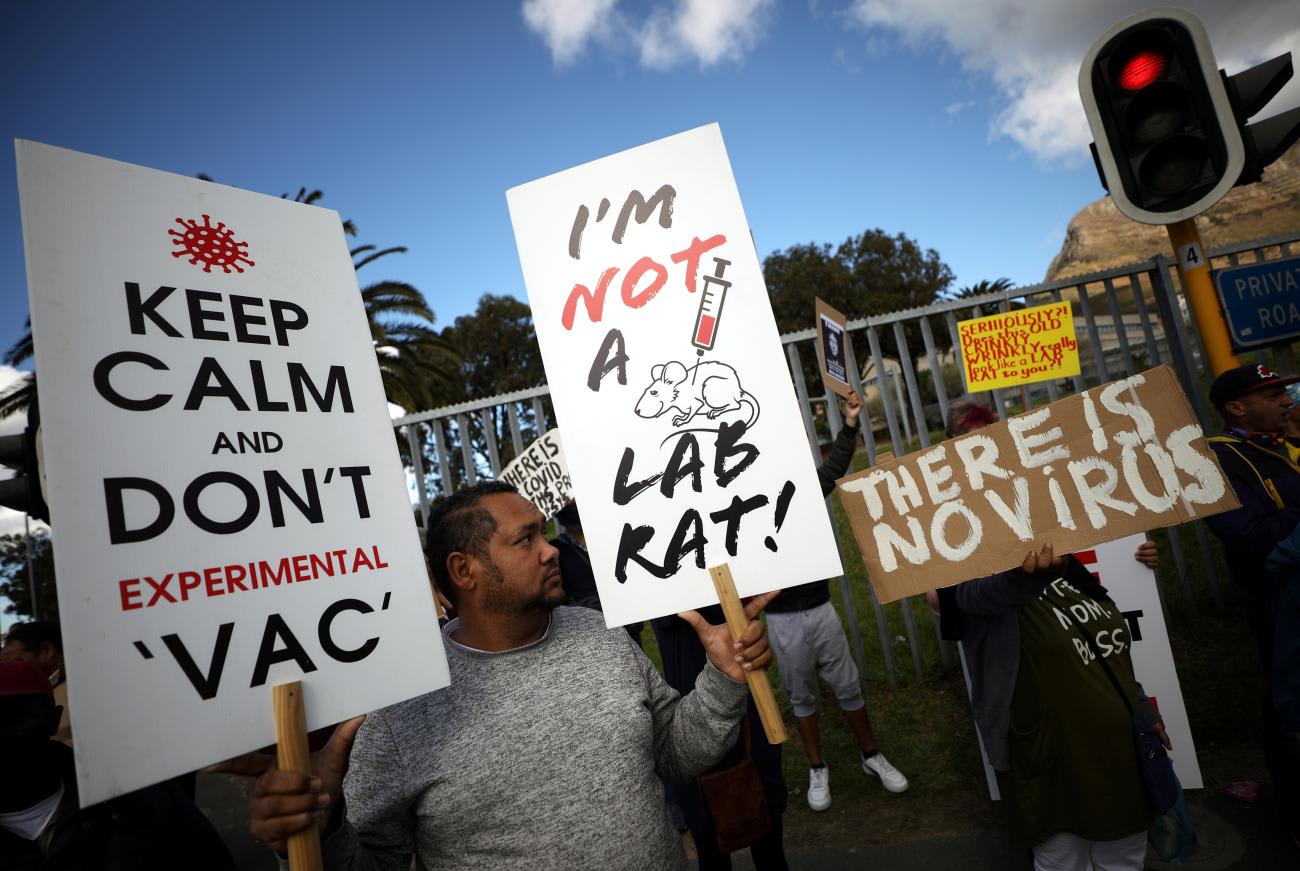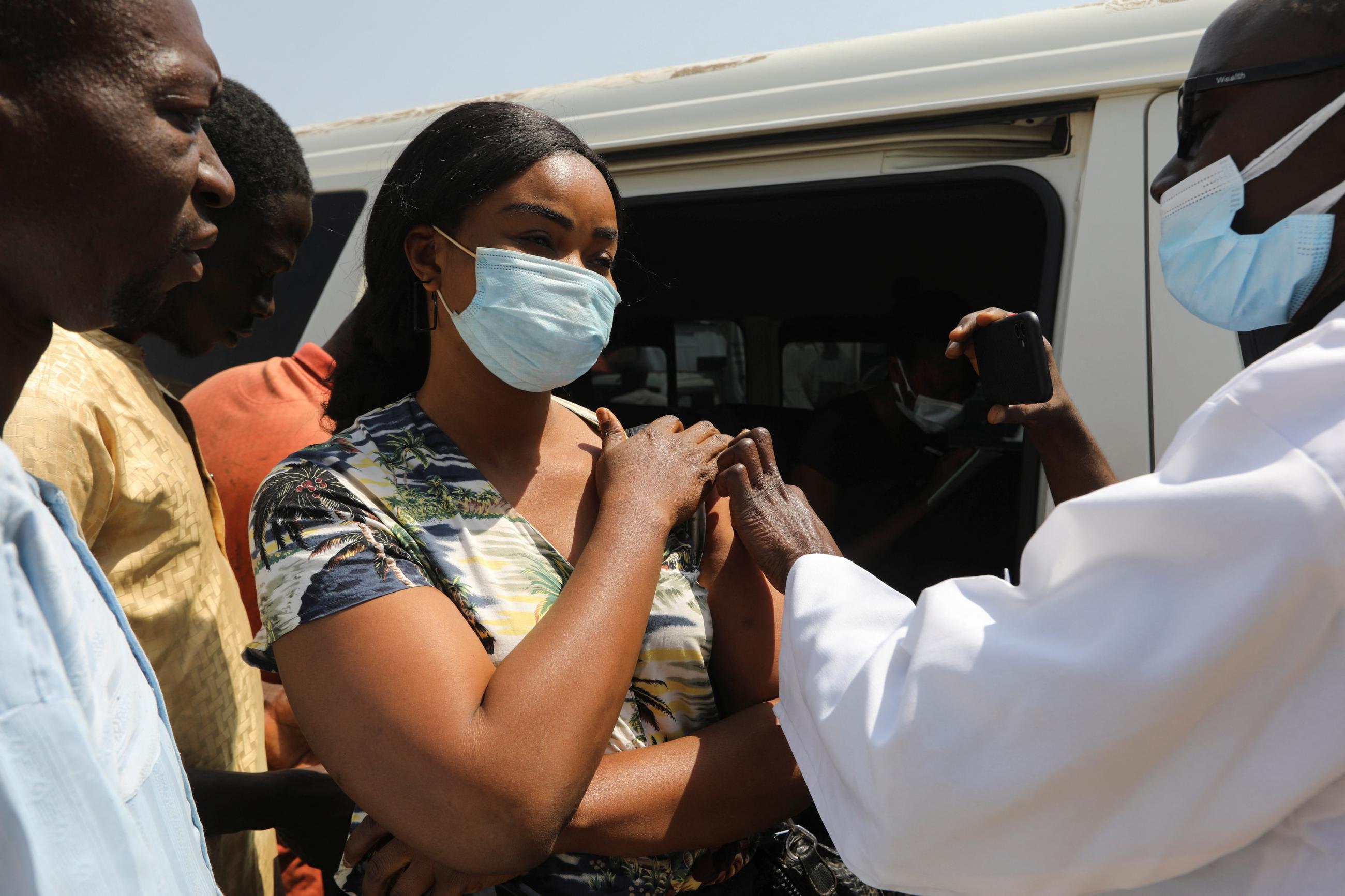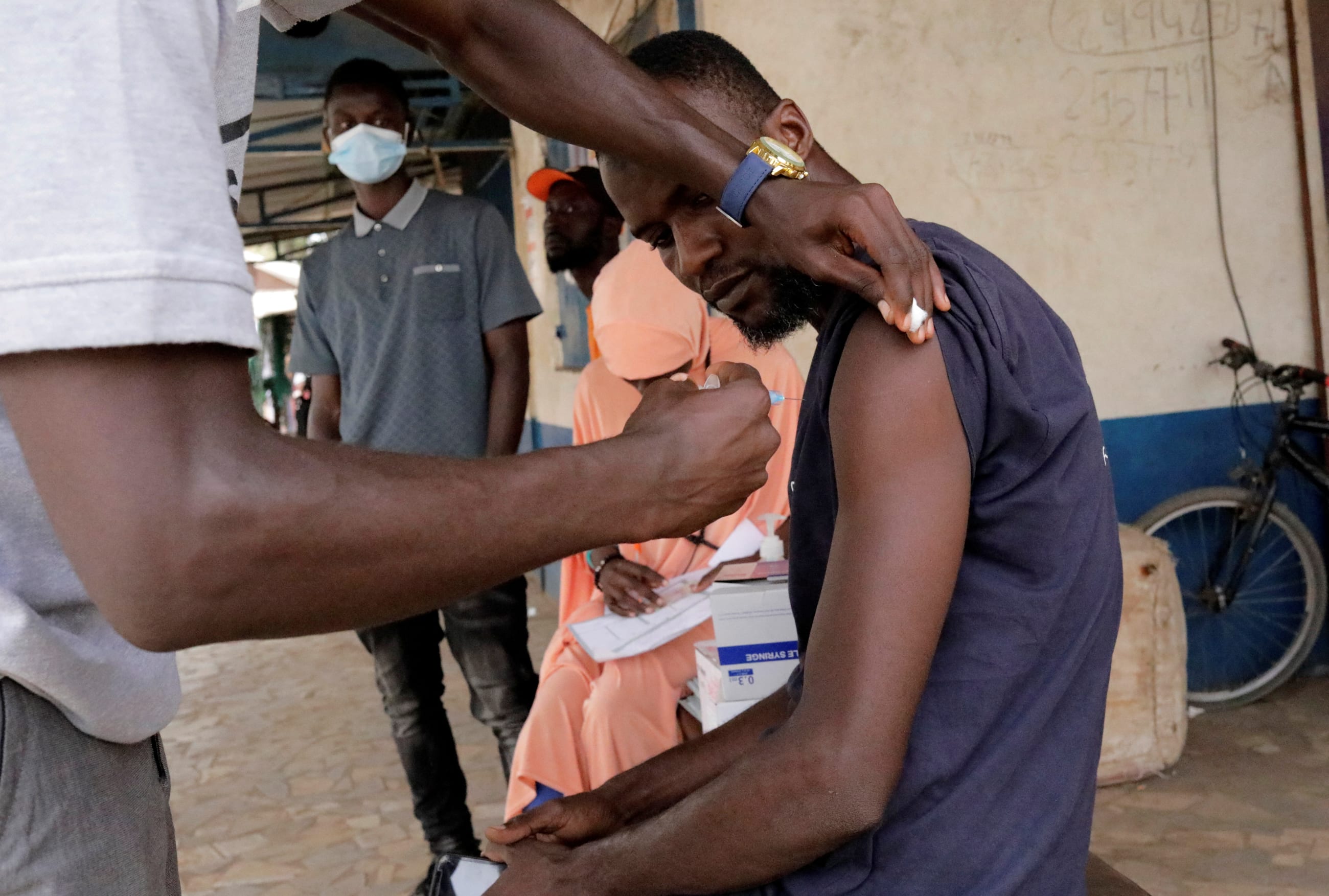COVID-19 may no longer be a global health emergency, but it remains a public health threat, and vaccination is a crucial tool for blunting its impact. Yet despite the proven safety and efficacy of COVID-19 vaccines, people in African countries express reservations about them and a suboptimal share of residents have received them, leaving the most vulnerable populations at higher risk of infection and deaths.
This vaccine hesitancy—which is influenced by individual beliefs, misinformation, health-care infrastructure and access, religious and cultural factors, safety issues, and the extended delay in making vaccines accessible in Africa, among other factors—has multifaceted and far-reaching implications.
Vaccine Safety Issues
Ensuring the safety of COVID-19 vaccines is critical to building trust among populations and achieving public health objectives. The vaccines were rigorously tested and evaluated, using processes that met necessary safety standards and allowed for emergency use authorization by stringent regulatory authorities. Nonetheless, adverse effects following immunization have been reported, including some that are common and minor (such as fever, weakness, body pains, and headache) and others that are rare and serious, such as thromboembolism, hemorrhage, thrombocytopenia, cardiac arrhythmia, hypertension, and hepatotoxicity. These events invariably have a strong impact, creating an atmosphere of skepticism, fear, and mistrust that persists over time.

Enhancers of Misinformation and Myths
The spread of misinformation, conspiracy theories, and anti-vaccination campaigns through social media has fueled vaccine hesitancy. False claims linking COVID-19 vaccines to severe and long-term side effects have generated concerns among the population. Some health-care workers are also hesitant to take the vaccine mainly because of a lack of confidence in its effectiveness. The inadequacy of the vaccine logistics and supply chain system, such as the short shelf-life of donated vaccines and cold chain storage concerns, aggravate this hesitancy. Studies show that inaccessibility of vaccines, particularly in remote areas with limited health-care infrastructure, may also contribute to vaccine hesitancy.
Religion and Cultural Factors
In most societies, religious beliefs and cultural practices shape individuals' attitudes toward vaccination. Some cultures in Africa have traditional beliefs about health and illness that may contradict the concept of vaccination. For example, some people believe that evil spirits cause illness and that vaccination is not an effective way to prevent it. Some religious groups may have concerns about the ingredients used in vaccines, including animal-derived substances or those derived from prohibited sources, leading to skepticism and hesitancy.

Tackling the Challenges for Optimal Uptake
Recognizing the urgent need to address vaccine hesitancy, the Africa Centers for Disease Control and Prevention (Africa CDC) Is employing all-inclusive strategies to promote vaccination, monitor adverse effects following vaccination, and develop consistent safety messages. In partnership with the Mastercard Foundation and its Saving Lives and Livelihoods initiative, Africa CDC is supporting African Union member states with a dual approach.
First, Africa CDC has launched a risk communication and community engagement team that is undertaking continuous community-centered social listening and feedback. So far, the team has launched studies on knowledge, attitude, and practices in six member states—the Central Africa Republic, Djibouti, Kenya, Liberia, Malawi, and Togo—which have highlighted key barriers to vaccinations from more than six thousand community respondents.
Second, Africa CDC has implemented interventions to reduce vaccine hesitancy. In collaboration with the World Health Organization, national regulatory authorities and pharmacovigilance stakeholders are actively enhancing the safety of vaccines and reducing vaccination hesitancy. Local authorities are also directly engaging communities, aided by community health workers and Red Cross volunteers. They are disseminating information via the public's preferred sources, prioritizing radio broadcasts over print materials such as flyers. Additionally, they are engaging and targeting key influencers in the community such as religious leaders, students, taxi drivers, and shopkeepers.
Local authorities are also directly engaging communities, aided by community health workers and Red Cross volunteers
The surveys undertaken thus far show main drivers of hesitancy include conspiracy theories, misinformation, beliefs that the threat posed by the virus is exaggerated, and a lack of confidence in the safety of the vaccines. Misinformation (inaccurate, but not necessarily with bad intentions) and disinformation (inaccurate, with intention to deceive) about COVID-19 appear to be widespread, and those who report being exposed to rumors are also more likely to believe them. Africa CDC in collaboration with member states developed safety messages to communicate a consistent message about the benefits of vaccines for the continent and to overcome hesitancy and slow uptake.
To accelerate vaccine uptake, countries have also implemented mini and mass vaccination campaigns, like one in April 2023 in which the Democratic Republic of Congo vaccinated 304,801 people. This campaigns and others like it aim to bridge the information gap and emphasize the benefits of vaccines. By strengthening communication channels and delivering a unified message, Africa can overcome hesitancy, protect high-priority population groups, prevent outbreaks, and ultimately thrive as a region free from vaccine-preventable diseases.
To ensure equitable distribution and improve vaccine access in underserved communities, the Saving Lives and Livelihoods initiative is working to strengthen health-care systems by investing in cold chains, supporting the training of health-care professionals, integrating COVID-19 vaccinations into routine national immunization programs. Since the outset of the COVID-19 pandemic, the initiative is also investing in the procurement of cold chain equipment across thirty-two countries as part of joint efforts with the United Nations Children's Fund to strengthen routine immunization with cold chain equipment.
This campaigns and others like it aim to bridge the information gap and emphasize the benefits of vaccines
The Next Steps
The continent is now exploring integrating COVID-19 vaccination into routine immunization services and adult noncommunicable disease clinics. This will help expand coverage of essential health services as well as reduce some hesitancy, strengthening the health system. Strengthening the reporting mechanisms for adverse effects following immunization and monitoring vaccine safety comprehensively—through enhanced surveillance systems, transparent communication, health-care provider training, collaboration, and public engagement—are all essential to rebuilding trust in COVID-19 vaccination efforts.
Given the potential consequences of a decline in COVID-19 vaccine coverage, governments, health-care providers, and communities must work together to combat this growing concern. Addressing vaccine hesitancy through targeted public health campaigns and promoting accurate scientific information is crucial to reducing safety concerns, dispelling myths, and building trust.













